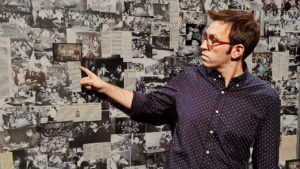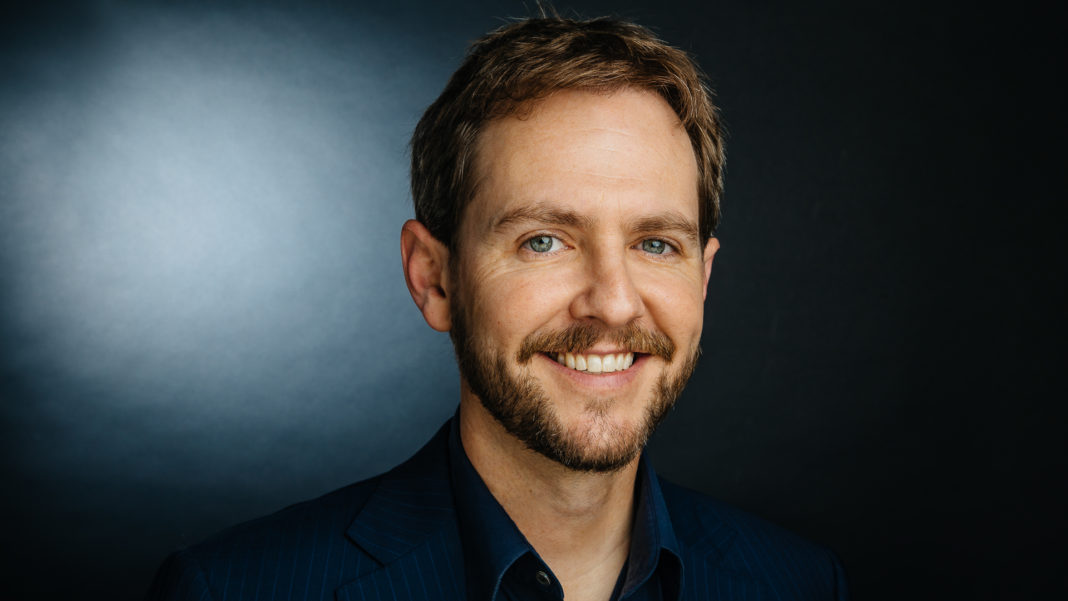In an admittedly informal survey of performers, executives and creators working in live theater in Los Angeles and beyond, the consensus was that the Geffen Playhouse won the pandemic. By that they mean that the swift pace at which Artistic Director Matt Shakman and his team were able to create original streaming programming put them in the best possible position to keep subscribers and theatergoers both entertained and committed.
The Geffen Stayhouse offered Helder Guimarães in The Present in May of last year and the show ran for 5 months and gave birth to a second show by the magician. They introduced David Kwong’s Inside the Box before The Present concluded its run and continued with streaming shows through June of this year.

As the Geffen Playhouse is about to embark on its slightly delayed 25th anniversary season, this seemed like a good time to talk to Shakman about the decisions they made early on in the pandemic and how the lessons they learned from the past year will influence the future of the Westwood venue.
What follows are excerpts from our conversation last week that have been edited for length and clarity.
Do you agree with that assessment that the choices you and the team made at the Geffen made COVID less of a factor for you than it might have been for other companies?
Such a difficult time for everybody and it continues to be difficult. We’re getting ready to reopen right now and every day we we have to wrestle with various issues and decide how best to open up in a safe way. But when the pandemic hit in March of 2020 the first thing we did was pivot to creating short form content so that we, as an institution, could stay creatively active and so that we could stay in touch with our alums who we knew were equally at sea in this new moment. We wanted to see how they were experiencing this odd time in the world and we wanted to create content so we could be in touch with our audience. It didn’t have anything to do with financial impact. We knew at that moment that there was no way to make any money off of that. And we were just trying to continue to do what we love to do.
We structured it, intentionally, like everyday business. We were running at eight shows a week. We were taking Mondays off. We had opening nights and closing nights and press nights. And I think just having a familiar rhythm in a very unfamiliar time was deeply reassuring to everyone at the Geffen and to our audiences as well.
It seems like as time went on the production values went up. I’m wondering how much of your own background as a director and a producer [Shakman received 2 Emmy Award nominations for WandaVision and will be directing the new Star Trek film] enabled you to rely on technology that perhaps other companies either weren’t thinking of doing, didn’t have the resources to do or just chose not to?

We got better at it for sure because we had never done it before. We had never done a show on Zoom. We were reaching out to Zoom and they were wonderful, very helpful, helping us to figure out how to maximize the platform to work for what we are trying to do. I had reached out to people who work in the camera department on other shows that I’ve done about what cameras we should be using and settings and ways to just make it look as good as possible on Zoom, which is a standard def format. So we’re not getting that high def that you’re used to seeing on Netflix and streaming at home. So how we can make our image look as good as possible over Zoom. Frank Marshall, who is the director of both of our Helder Guimarães shows, is himself a legendary producer and director. And he was reaching out to folks that he worked with as well. So we were trying to get better with every version.
You were just in the New York Times recently in a story about about streaming and you talked about how as time went on and things started to open up you saw a drop in how much you were able to to get people to attend online shows. We’re living in an interesting time where technology is making it much more possible for people to just stay at home. Do you see any component of what you do moving forward at the Geffen being designed for this rapidly growing stay-at-home crowd?
It is a challenge because I have noticed that now that we can go back into shared spaces the desire for people to find their entertainment through online options like what we were offering during the lockdown is definitely less pronounced. But I agree that we need to continue to think about the future. And to that end we are partnering with several artists about how we can do all virtual shows in the future that we think will be able to still appeal in a quote unquote new normal and also be connected to productions that we’re doing at the theater. I can’t speak to specifically about either of them because they’re still in their early phases. But I think they offer an opportunity to continue to grow our audience, to take down barriers to entry that are financial and geographical. We want to be able to to have theater available to everyone. So we’ll see if we can figure out what a hybrid looks like. I think being curious is the first step and then we’ll see where we go.
Bilbo Baggins, a character from Tolkien’s The Hobbit and someone with whom I know you have some familiarity dating back to a production you were in when you were four-and-a-half, says in one of the books, “The road goes on and on; down from the door where it began. Now, far ahead, the road has gone and I must follow if I can.” Where does the road in the next few years lead for the Geffen Playhouse and for you as well?
I am really excited about the next twenty five years for the Geffen. We have been through a lot, as the rest of the country has been, and I think we’re coming out of it with renewed focus and determination. The season that we have planned is a really exciting one that I think honors both the past and looks forward to a bright future.
And I think there’s a healthy interest in coming back to the theater now. Many people speak about the the Roaring Twenties that are coming. I don’t know that I’ve heard the roar, but I definitely hear a good, strong growl. And I think people are ready to come out and and be with each other. So hopefully by next year, things will start to feel like normal again. And I’m excited to help be a caretaker for it as it moves forward into the future.
Photo of Matt Shakman by Jeff Lorch (Courtesy Geffen Playhouse)











